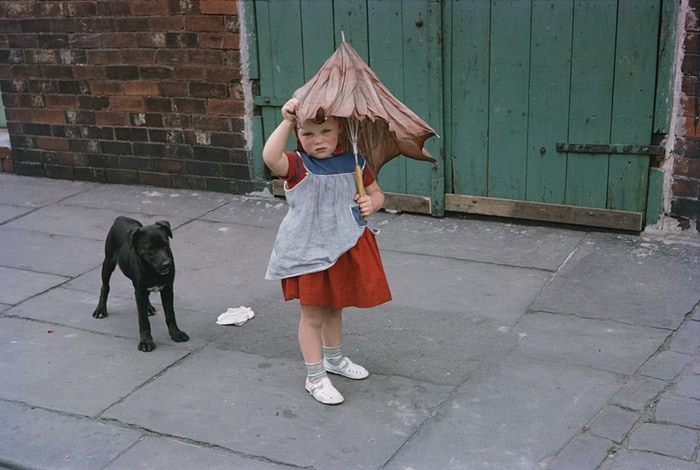Today I decided to write about a photographer I discovered recently, whose work I really love. Shirley Baker was a British photographer, known mostly for her street photography and portraits of Manchester's working class areas.
The mid-20th century spawned a lot of talented documentary photographers, though there were very few women in the field; when Baker studied photography at Manchester College of Technology in the 1950s, she was one of only two women on the course.
Baker had trouble getting a press card, meaning she couldn't pursue a career in photojournalism, something she put down to only being given the assignments that were "unsuitable" for men. One article she contributed to, "How To Photograph Children", made the patronising observation of "You'd expect a woman photographer to be at home with such a subject."
From the 60s, Baker taught photography at Salford College of Art, always carrying a camera in her handbag. During free periods, she started taking photographs of the nearby social housing area that was being demolished, and the people that were still living there. "Slum clearances" started in the 1930's, and began again in the 1950's after the war, with around 1.3 million houses demolished across the country. Baker seemed to be the only person interested in recording the history of these communities that were being torn down.
Baker's work received barely any attention at the time. These photos weren't exhibited until 1986, at Salford Museum & Art Gallery, in a show titled "Here Today, Gone Yesterday."
One of the things I like about Baker's work is how she was able to document quite a dark and unhappy period without making us pity the people who are shown. There is a sense of empathy however, but also a sense of compassion, and, at times, humour.
The family's surrounded by demolition aren't broken or worn down themselves, they're resilient and resourceful. Children make swings on lampposts, play cricket in the street, draw on paving stones. These people aren't put on display for us to feel sorry for, they're just ordinary family's who happen to live in poor areas. Poverty is a backdrop, not a defining feature.
Baker died in 2014, aged 82.





No comments:
Post a Comment